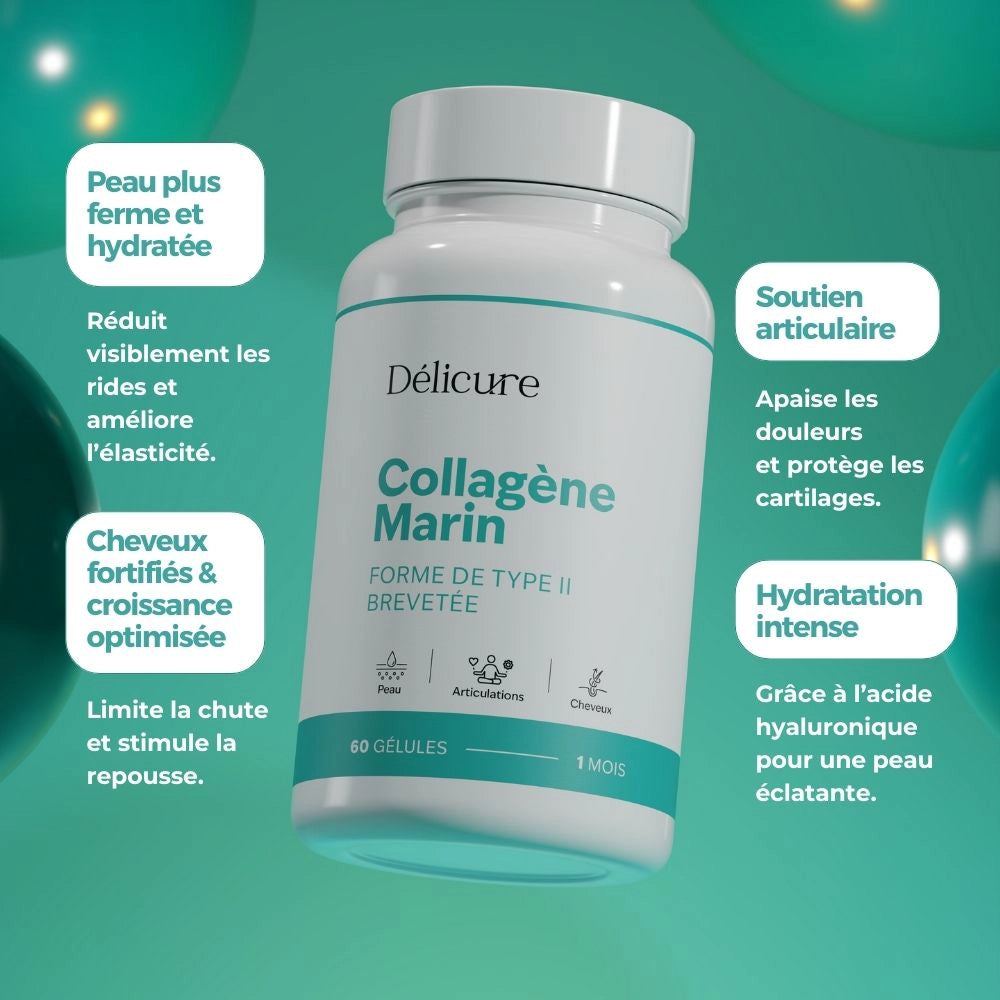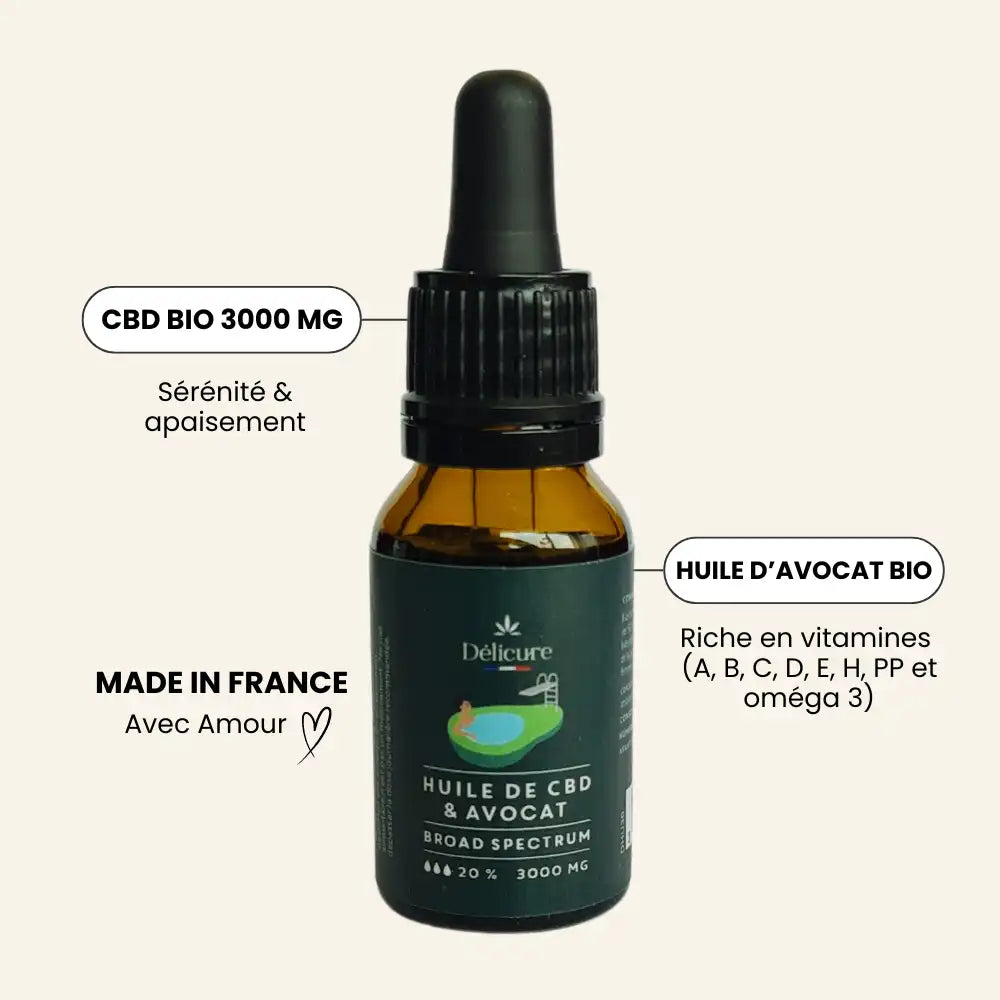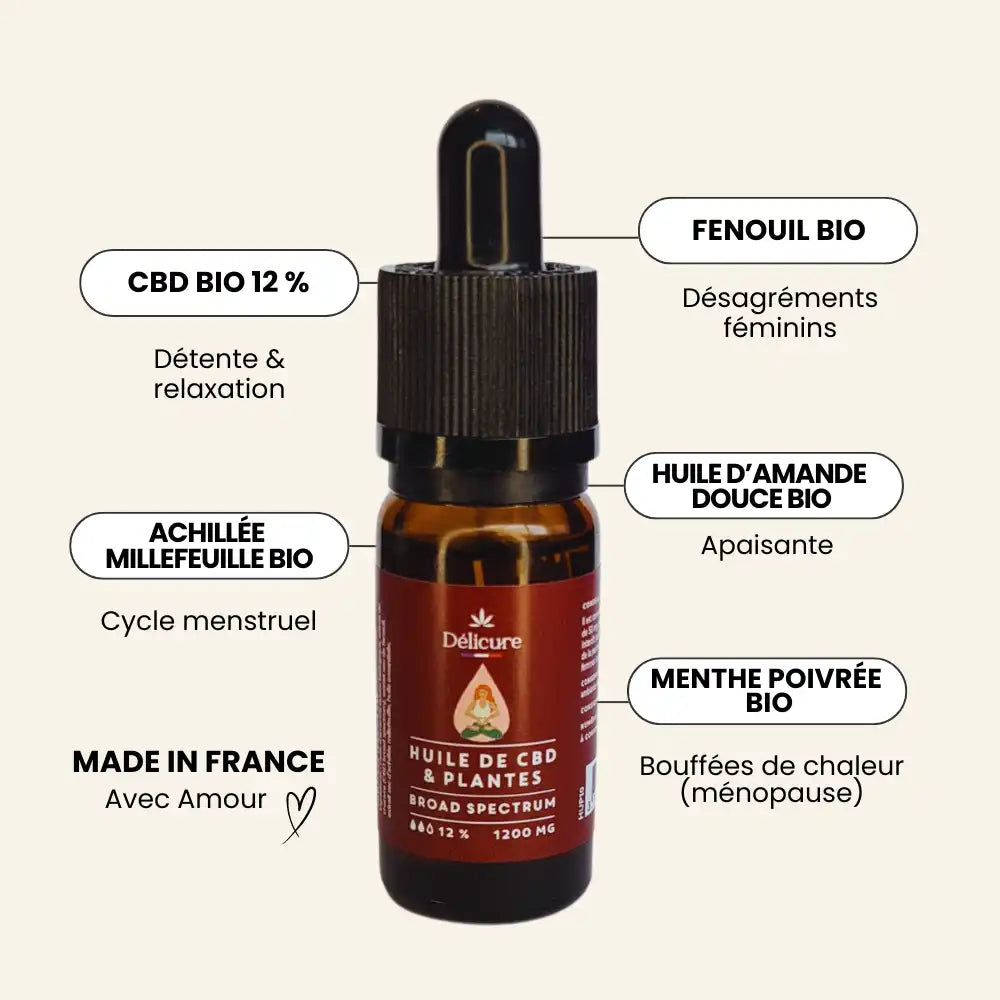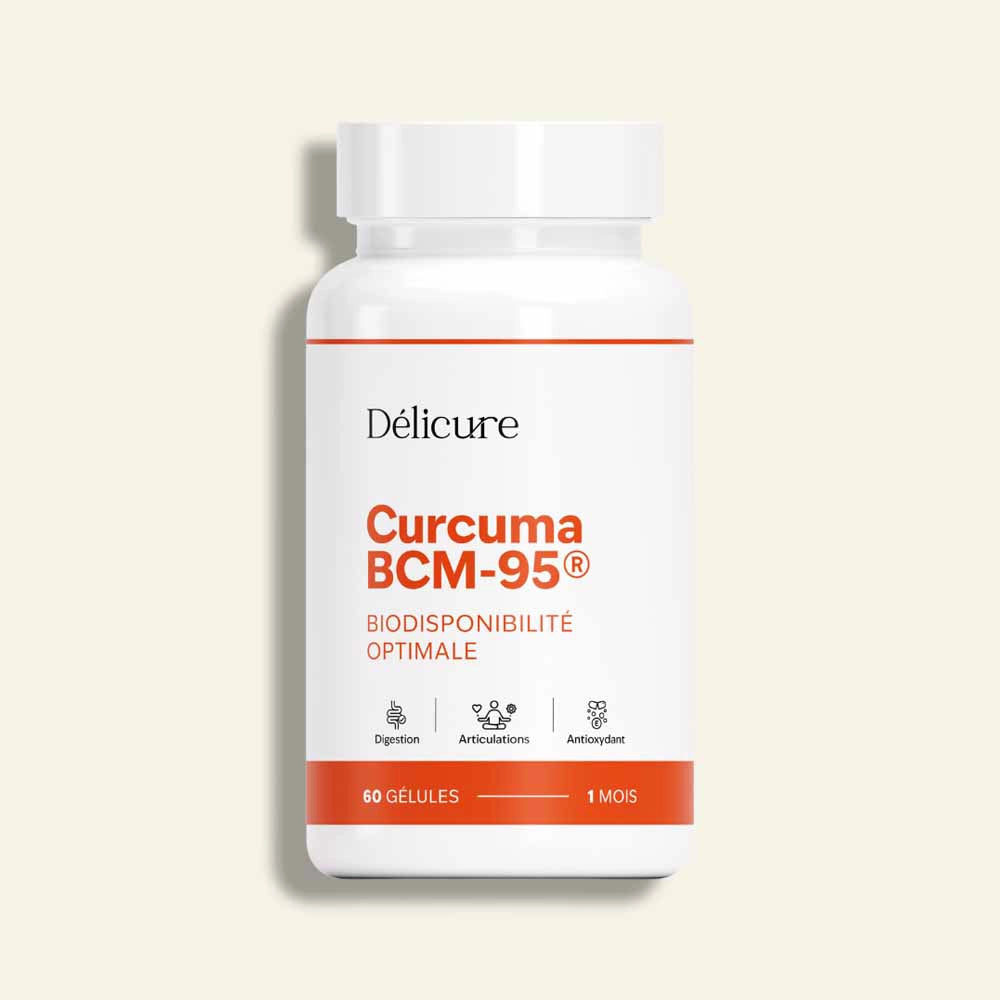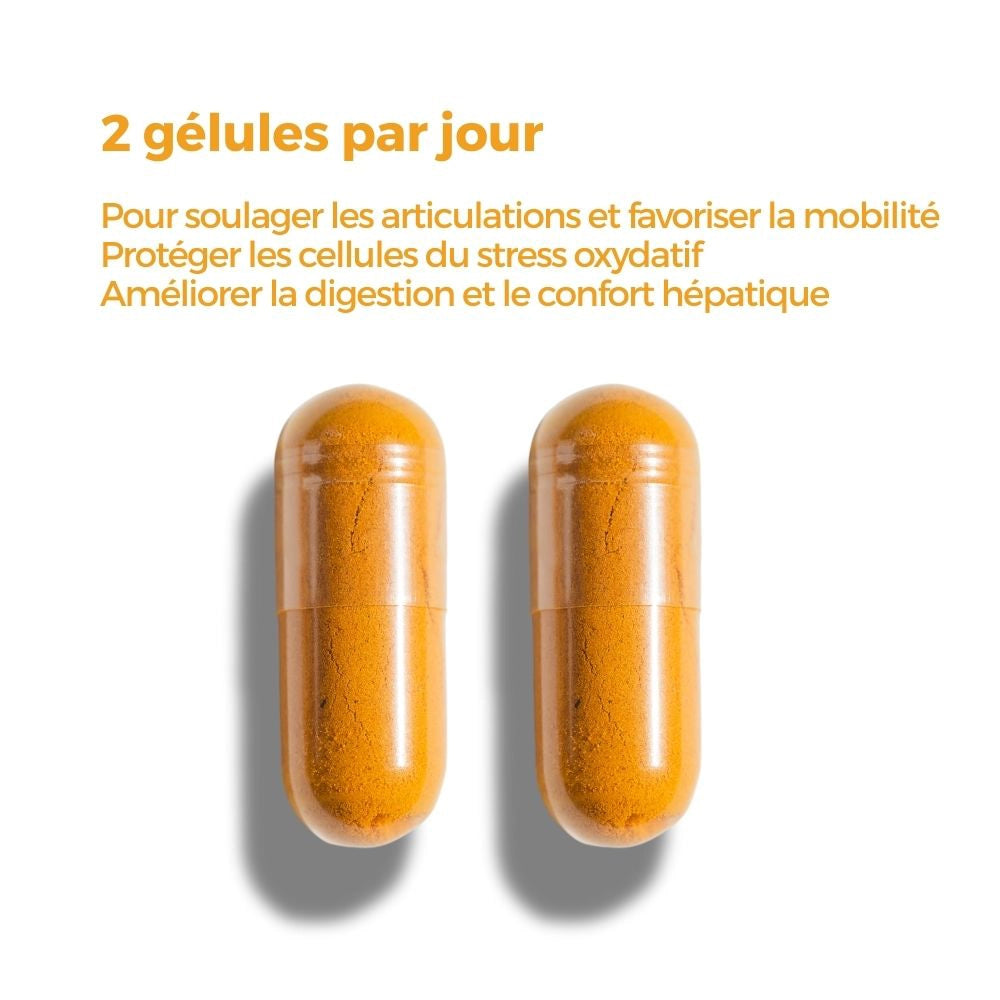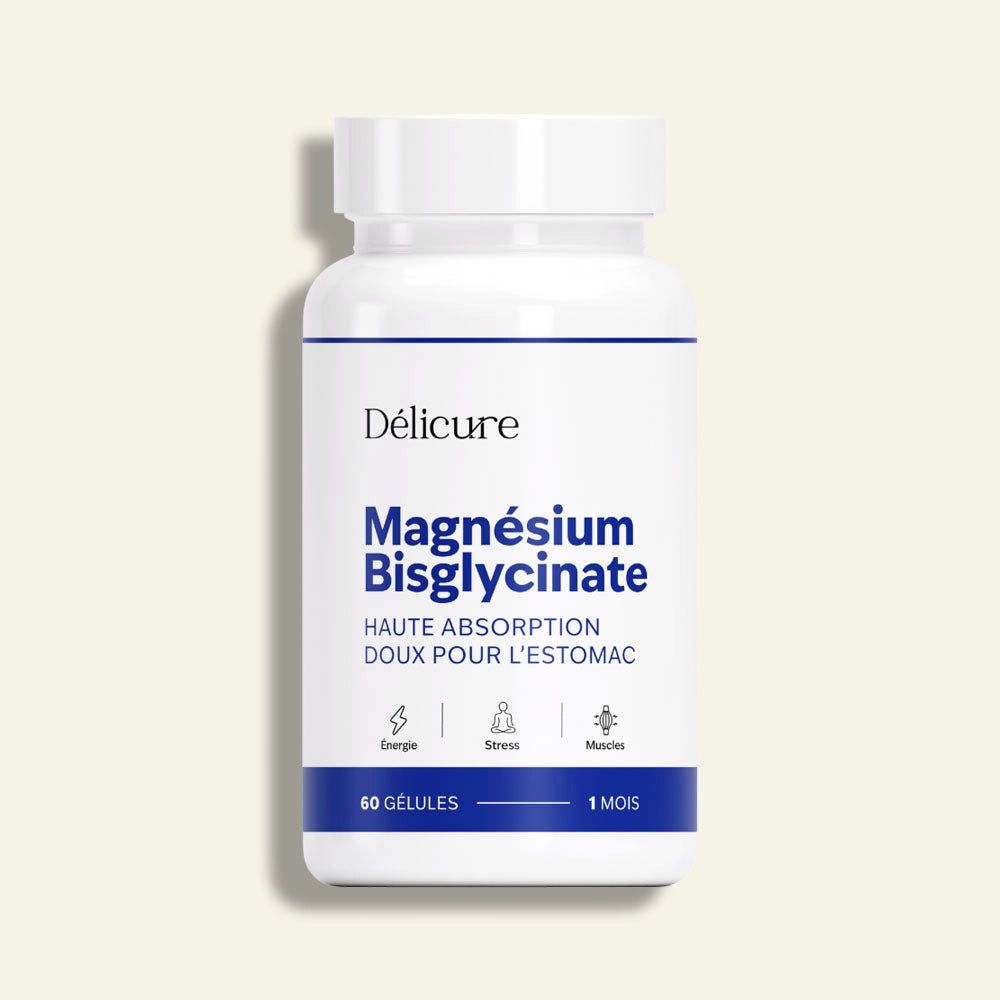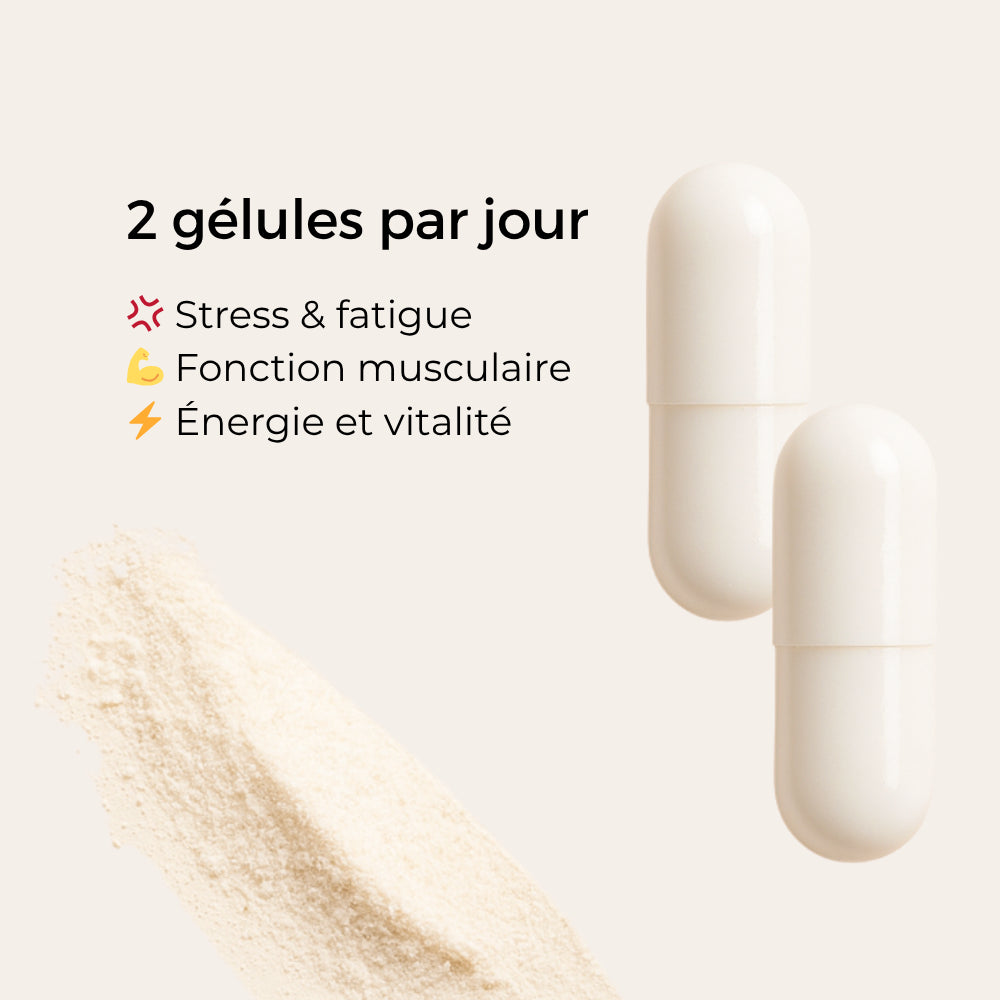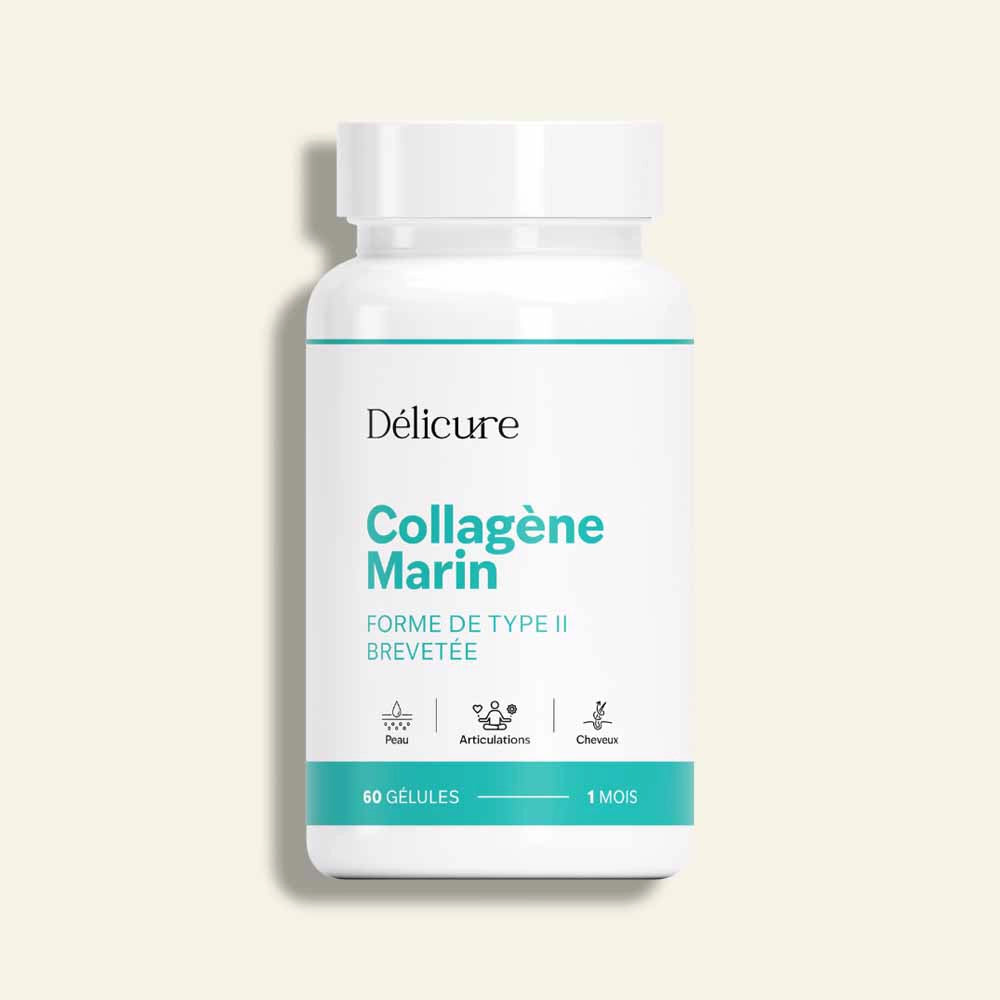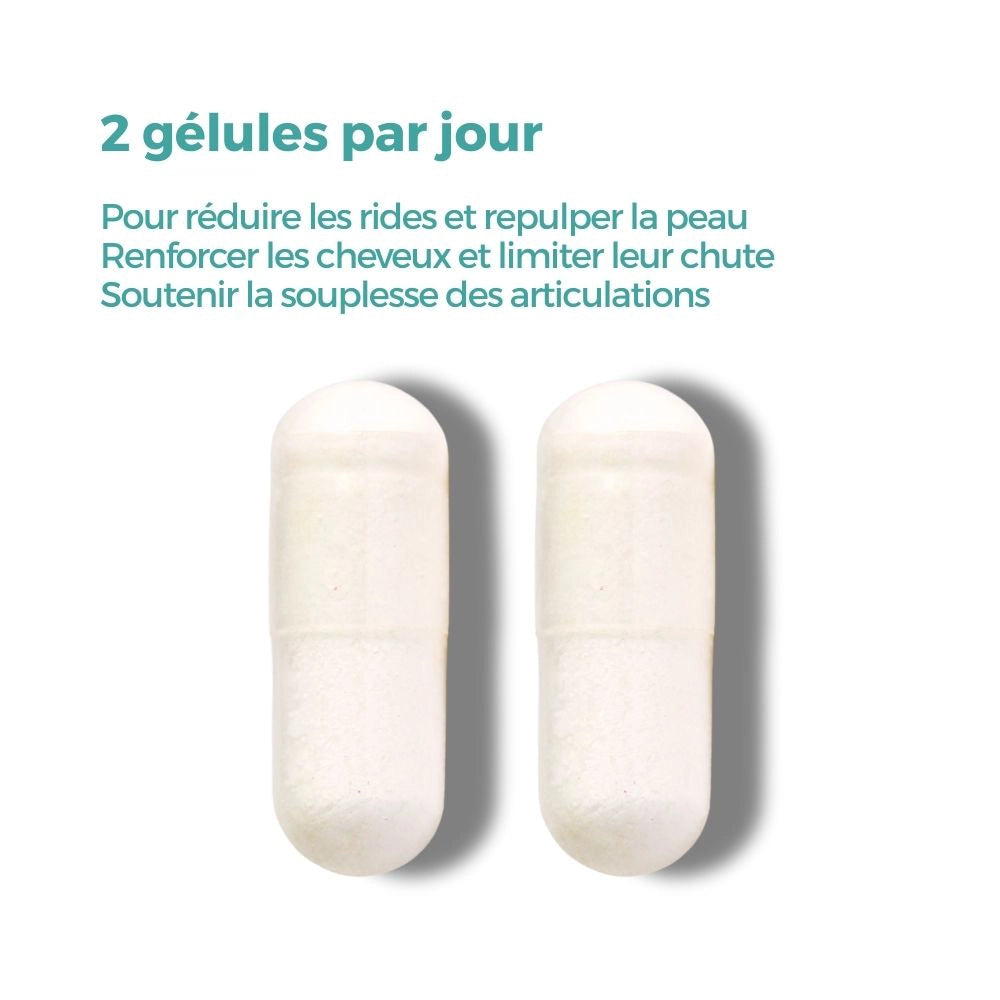
What are the dangers of marine collagen?
Marine collagen is currently enjoying phenomenal success in the dietary supplement market, particularly valued for its remarkable benefits for skin, hair, nails, and joints. This supplement has become essential thanks to its regenerative, anti-aging, and restorative effects. However, its growing popularity has understandably raised questions about potential side effects and risks. While generally considered safe, it is crucial to carefully analyze the potential risks associated with regular and prolonged consumption to prevent any complications.

Allergic reactions to marine collagen
The main danger of marine collagen concerns potential allergic reactions. Because it is extracted primarily from fish and sometimes shellfish, marine collagen can trigger immune reactions in people allergic or sensitive to seafood. Symptoms vary from person to person, ranging from mild itching or rashes to much more severe reactions, such as breathing difficulties or swelling. Therefore, before incorporating a marine collagen supplement into your daily routine, it is essential to thoroughly verify the exact origin of the product and, if you have a known history of seafood allergies, undergo an allergy test under medical supervision.
Risk of contamination by heavy metals
Another significant risk associated with the use of marine collagen is the potential for contamination by heavy metals and other toxic substances. This contamination largely depends on the geographical origin of the fish used, as well as the manufacturing methods employed. Fish living in polluted waters accumulate heavy metals such as mercury, arsenic, and lead. When present in marine collagen, these substances can lead to long-term toxic effects on the nervous system, kidneys, and liver. It is therefore essential to choose a product certified by strict standards of quality, traceability, and purity, thus guaranteeing the absence or minimal presence of contaminants.

Digestive side effects linked to excessive consumption
Besides allergic reactions and the risk of contamination, excessive intake of marine collagen can also cause significant digestive discomfort. Despite generally good tolerability, excessive consumption of marine collagen can trigger gastrointestinal issues such as bloating, gas, abdominal pain, or diarrhea. These side effects stem primarily from the body's occasional difficulty in digesting large quantities of protein in a short period. To minimize these risks, it is strongly advised to adhere to the manufacturer's recommended daily doses, gradually introduce the supplement into your diet, and maintain regular cycles with breaks between each course.
Drug interactions and precautions for use
Furthermore, particular attention should be paid to potential interactions between marine collagen and certain medications or supplements. Indeed, some substances, especially anticoagulants or medications used to treat thyroid disorders, could interact negatively with high doses of marine collagen. In addition, due to a lack of robust clinical data concerning pregnant or breastfeeding women, these populations are strongly advised to avoid taking marine collagen supplements without first consulting a healthcare professional. Therefore, careful and informed use of marine collagen ensures its safety and maximizes its potential benefits.

Why choose Cartidyss® marine collagen?
Not all marine collagens are created equal, nor do they all present the same level of risk. Among the available options, Cartidyss® marine collagen, contained in our collagen capsules, stands out by significantly reducing the aforementioned risks thanks to its innovative formulation. Produced using an exclusive water extraction process, without the use of chemical solvents, Cartidyss® boasts optimal purity , avoiding any contamination by heavy metals or other toxins. Furthermore, thanks to its unique and extremely reduced molecular structure, this type II marine collagen exhibits exceptional bioavailability with an absorption rate of up to 90%, thus considerably reducing the digestive risks associated with high protein intake. The results of rigorous clinical studies demonstrate that a daily dose of only 500 to 1000 mg is sufficient to achieve effects comparable to, or even superior to, much higher doses of conventional collagen. Cartidyss® is therefore a safe, effective solution and particularly suitable for people who are sensitive or wish to benefit from the virtues of marine collagen while minimizing the risks associated with its regular consumption.


